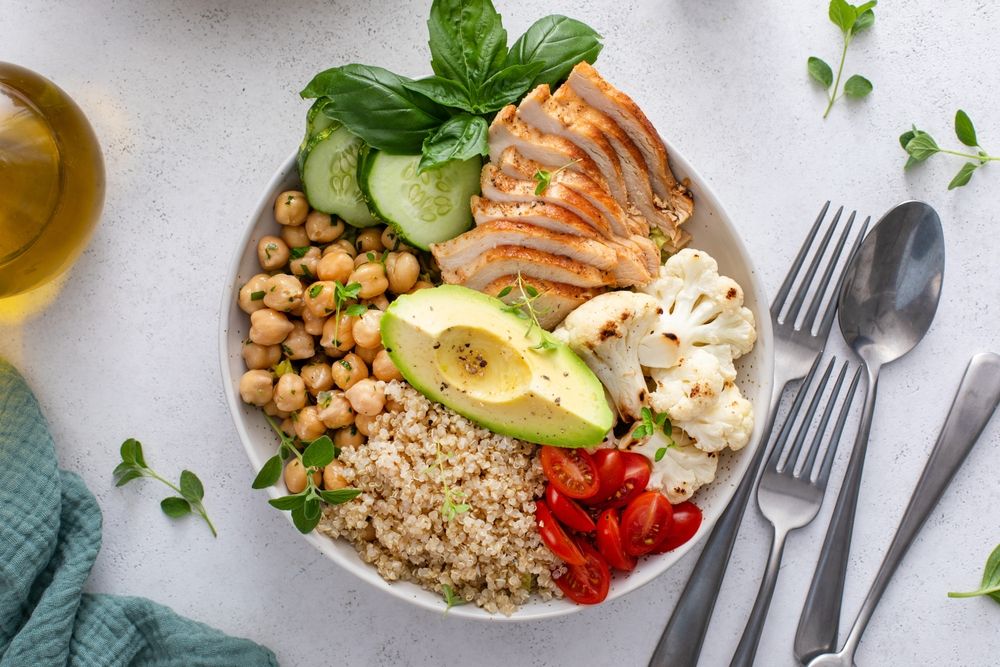In today’s fast-paced world, it’s easy to overlook the importance of mindful eating. Many people eat on the go, distracted by work, screens, or simply rushing through meals to get onto the next task. However, eating mindfully can significantly improve your digestion, enhance your overall health, and help you feel more satisfied with your meals. In this article, we’ll explore what mindful eating is, how it impacts digestion, and practical tips for adopting this approach to eating.
1. What is Mindful Eating?
Mindful eating is the practice of paying full attention to the experience of eating, with a focus on how food looks, tastes, smells, and feels. It involves slowing down, engaging all of your senses, and being present in the moment rather than eating mindlessly or out of habit. This approach encourages you to listen to your body’s cues for hunger and fullness, promoting healthier eating habits and better digestion.
-
Tip: Mindful eating is about awareness—not restriction or judgment. It’s about enjoying your food and paying attention to how it makes you feel.
-
Impact: By slowing down and being present, mindful eating can help prevent overeating, improve digestion, and foster a better relationship with food.
2. Chew Your Food Thoroughly
One of the simplest yet most effective mindful eating practices is chewing your food thoroughly. Chewing your food properly breaks it down into smaller pieces, making it easier for your digestive system to process. Additionally, chewing releases enzymes in your saliva that aid in digestion and help your body absorb nutrients more efficiently.
-
Tip: Try to chew each bite 20-30 times before swallowing. This may feel like a slow process at first, but it encourages better digestion and can prevent bloating or discomfort after meals.
-
Impact: Thorough chewing helps your stomach and intestines process food more easily, leading to improved digestion and nutrient absorption.
3. Eat Without Distractions
When you eat while distracted—whether it’s watching TV, scrolling through your phone, or working—you’re not giving your full attention to the act of eating. This can lead to overeating, as you’re less aware of when you’re full. Distractions can also prevent your body from properly signaling hunger or satiety, which can disrupt digestion.
-
Tip: Turn off the TV, put down your phone, and focus on your meal. Create a calm eating environment by sitting at a table, chewing slowly, and savoring each bite.
-
Impact: Eating without distractions allows your body to better process and signal when you’re full, reducing overeating and promoting healthier digestion.
4. Take Smaller Bites and Pause Between Them
Taking smaller bites and pausing between bites gives your digestive system time to process each mouthful of food. This allows your stomach to communicate with your brain, signaling when you’re starting to feel full. It also helps your body produce the necessary digestive juices needed to break down food effectively.
-
Tip: Take smaller bites of food, and set your utensils down between bites. Use this time to engage with the flavors and textures of your food, as well as to check in with your body’s hunger cues.
-
Impact: Slowing down and pausing between bites gives your body more time to digest food properly and reduces the chances of indigestion, bloating, or discomfort after meals.
5. Pay Attention to Hunger and Fullness Cues
Mindful eating involves listening to your body’s signals about hunger and fullness. It’s important to eat when you’re hungry and stop when you’re satisfied—not when you’re overly full or have finished everything on your plate. This can help prevent overeating and reduce stress on your digestive system.
-
Tip: Before eating, ask yourself how hungry you are on a scale of 1-10, and aim to eat until you’re around a 6 or 7 on that scale (satisfied but not stuffed).
-
Impact: Tuning into your body’s hunger and fullness signals prevents overeating, which can put unnecessary strain on your digestive system and cause discomfort.

6. Avoid Eating When You’re Stressed
Eating while stressed can impair digestion and may cause issues like acid reflux or indigestion. When you’re stressed, your body is in “fight or flight” mode, which redirects blood flow away from the digestive system, making it harder for your body to properly break down and absorb food.
-
Tip: If you’re feeling stressed or anxious, take a few moments to calm down before eating. Practice deep breathing or take a short walk to help your body relax.
-
Impact: Eating in a calm, relaxed state helps your digestive system function more efficiently, promoting better digestion and absorption of nutrients.
7. Savor and Enjoy Your Food
Taking the time to savor your food not only enhances the eating experience, but it also helps you feel more satisfied with less food. When you slow down to enjoy the flavors, textures, and aromas of your meal, you’re more likely to feel full with smaller portions.
-
Tip: Pay attention to the flavors, textures, and colors of your food. Take a moment to notice how each bite makes you feel and enjoy the sensory experience.
-
Impact: Savoring your food improves digestion by allowing your body to focus on properly processing it, and it helps you feel more satisfied without overeating.
8. Drink Water Before and After Meals
Hydrating before and after meals supports your digestion by ensuring your body has the fluids it needs to break down food. However, it’s important not to drink too much water during meals, as this can dilute stomach acid and slow down digestion.
-
Tip: Drink a glass of water 20-30 minutes before meals to hydrate your body and support digestion. If you need to drink during meals, keep it to small sips.
-
Impact: Proper hydration helps maintain digestive function, making it easier for your body to process food efficiently and reducing the risk of bloating or indigestion.
9. Eat Whole, Nutrient-Dense Foods
Mindful eating isn’t just about how you eat; it’s also about what you eat. Opt for whole, unprocessed foods that are rich in fiber, vitamins, and minerals. These foods are easier to digest and nourish your body better than highly processed, nutrient-depleted options.
-
Tip: Incorporate more fruits, vegetables, whole grains, lean proteins, and healthy fats into your meals. These foods support digestion and provide long-lasting energy.
-
Impact: Whole foods are easier on your digestive system, promote regular bowel movements, and provide the nutrients your body needs to function optimally.
10. Practice Gratitude for Your Food
Taking a moment to express gratitude for your meal can have positive effects on digestion. Gratitude helps reduce stress and enhances your connection to your food, which can promote better digestion.
-
Tip: Before eating, take a deep breath and appreciate the food in front of you. A simple “thank you” for the nourishment can set a positive tone for your meal.
-
Impact: Gratitude helps you relax and create a positive atmosphere for eating, which supports healthy digestion and overall well-being.
Mindful eating is a powerful tool for improving digestion, reducing overeating, and creating a more positive relationship with food. By practicing simple habits like chewing thoroughly, eating without distractions, and tuning into your body’s hunger cues, you can support your digestive system and feel more satisfied with your meals. With these mindful eating practices, you can promote better digestion, enhance your overall health, and make eating a more enjoyable and nourishing experience.





